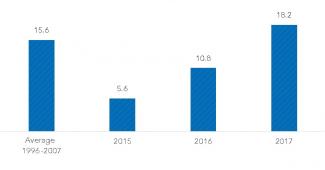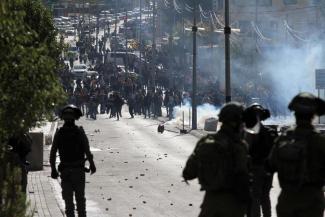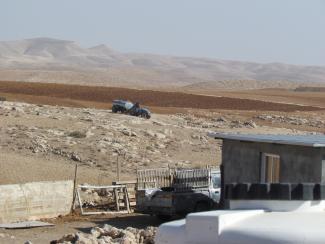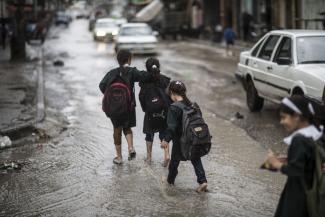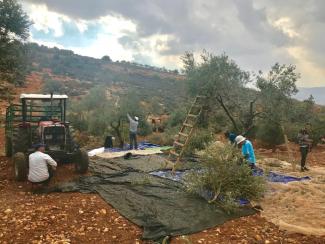November marked the beginning of the peak season for the export of high-value cash crops such as strawberries. Growth in agricultural trade from the Gaza Strip in 2017 is encouraging news within an economic context characterized by sluggish growth and unemployment peaking at 46.6 per cent in the third quarter of 2017.
The Monthly Humanitarian Bulletin | November 2017
In this document
The second week of December 2017 has been marked by heightened unrest across the occupied Palestinian territory (OPT). The 6 December announcement concerning the United States’ recognition of Jerusalem as the capital of Israel triggered widespread demonstrations and clashes between Palestinians and Israeli forces.
Intense military training exercises over the past two months and the obstruction of key access routes have exacerbated the coercive environment imposed on approximately 1,300 residents of 12 Palestinian herding communities in southern Hebron.
In the Gaza Strip, another winter season brings with it the threat of temporary displacement, property losses and health risks due to flooding and poor housing conditions. Insufficient funding, import restrictions, the ongoing energy crisis and the limited capacity of the Palestinian Civil Defense (PCD) are key factors that hinder the ability of the relevant actors to reduce vulnerability and respond effectively.
The 2017 olive harvest season, which lasted roughly from mid-September to mid-November, was reported to have proceeded relatively smoothly. However, an increase in incidents of settler violence, including theft of and damage to olive trees, and restrictions on access to olive groves behind the Barrier and near Israeli settlements, continue to pose challenges for Palestinian farmers.
